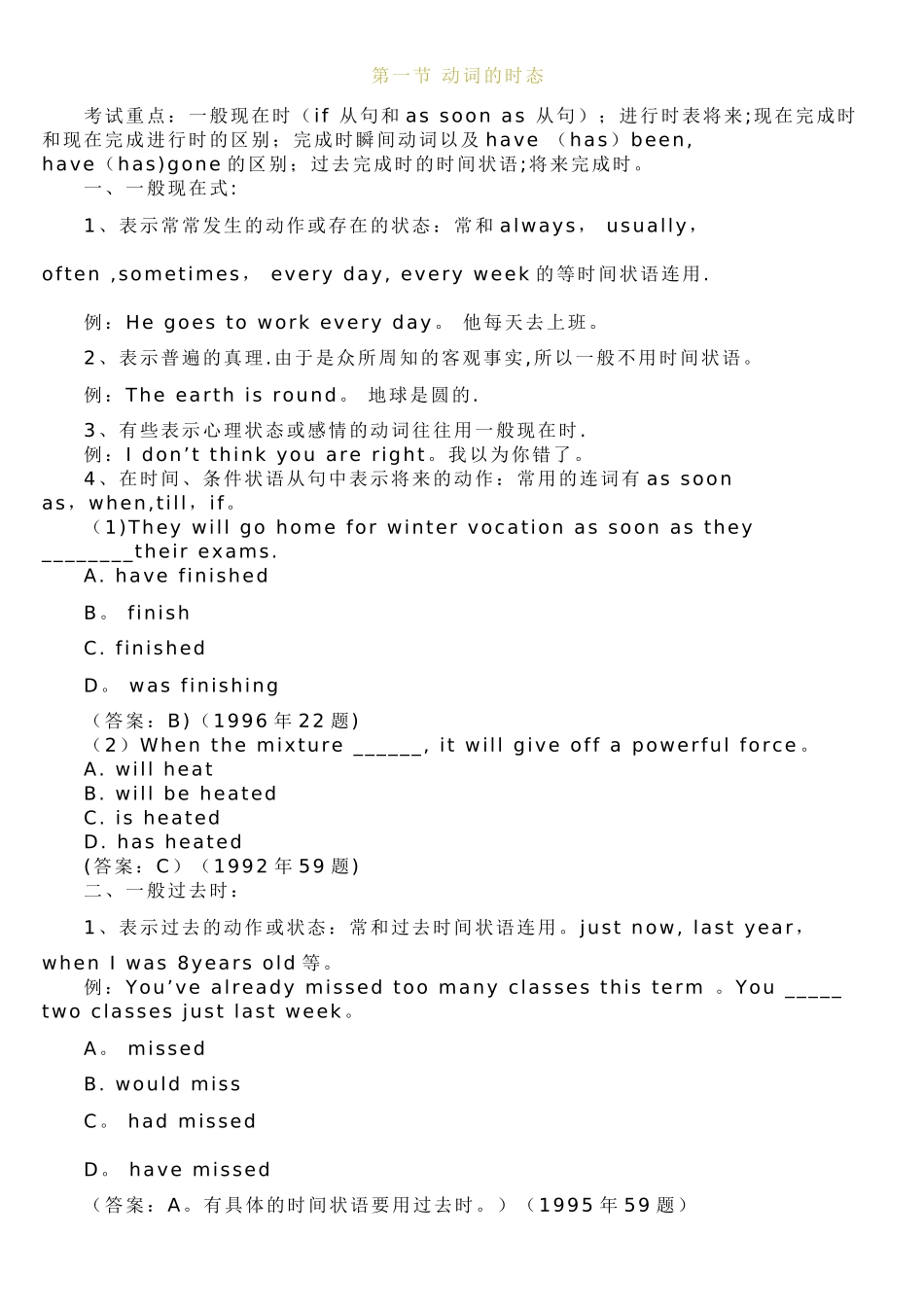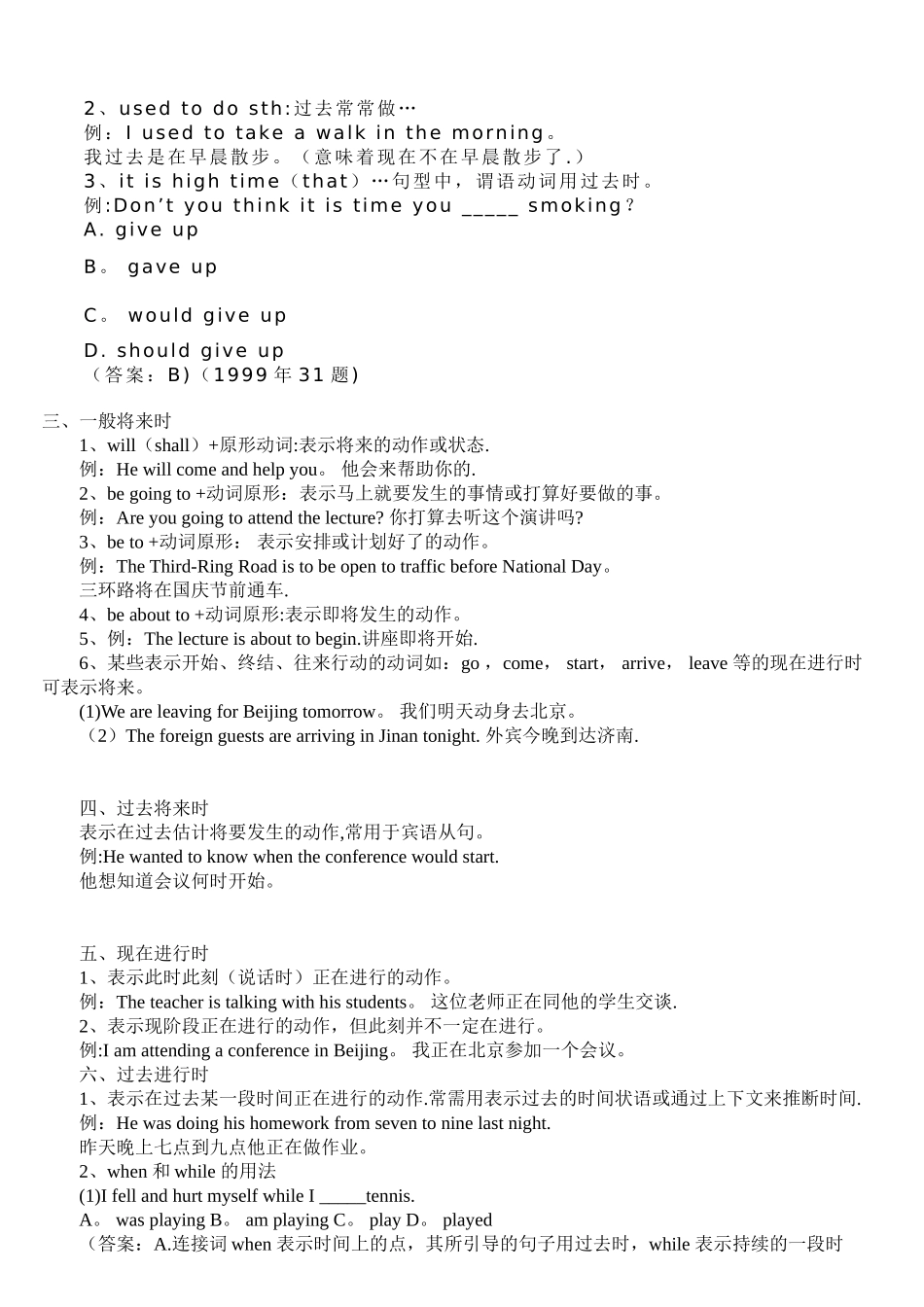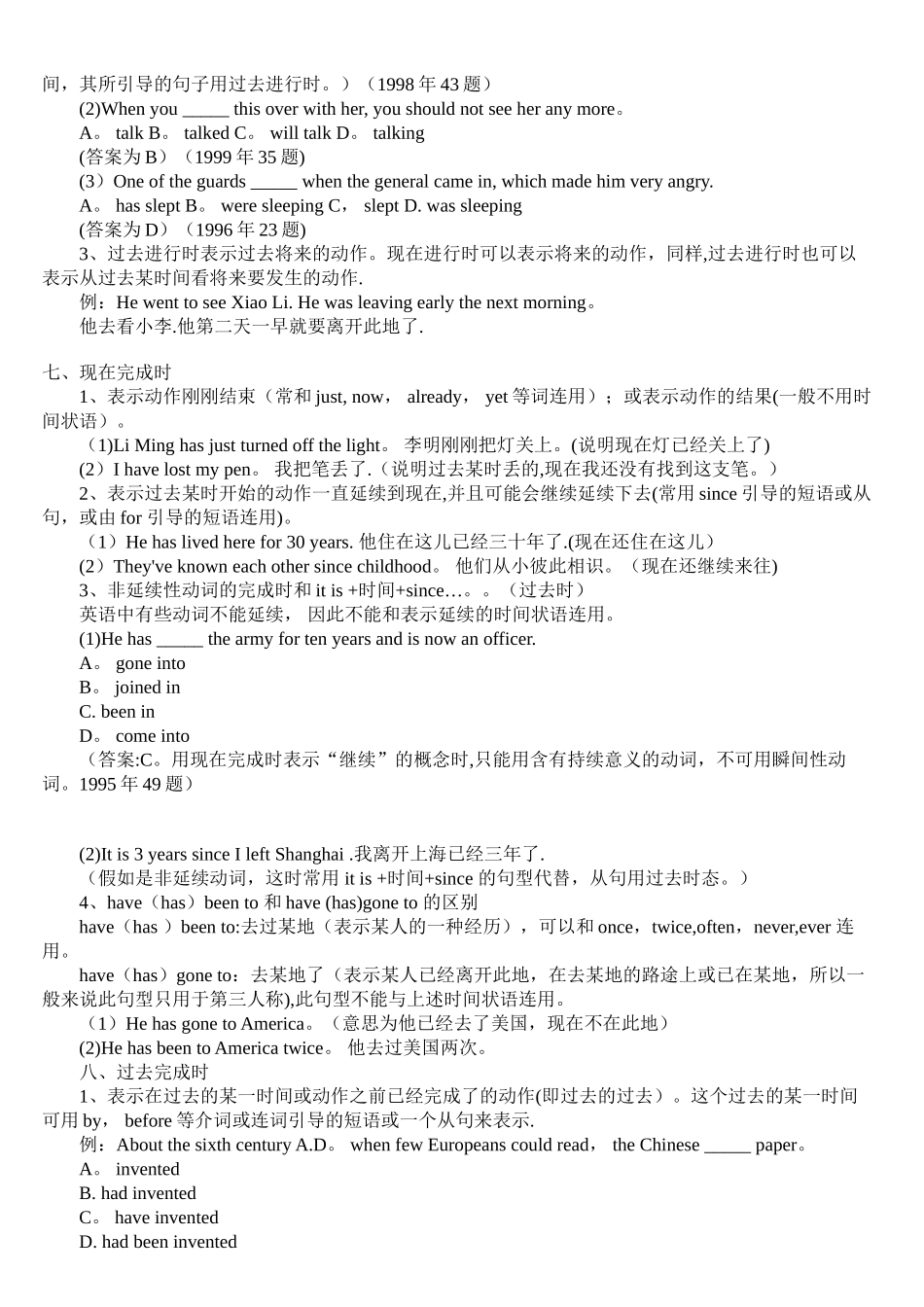第一节 动词的时态考试重点:一般现在时(if 从句和 as soon as 从句);进行时表将来;现在完成时和现在完成进行时的区别;完成时瞬间动词以及 have (has)been, have(has)gone 的区别;过去完成时的时间状语;将来完成时。 一、一般现在式: 1、表示常常发生的动作或存在的状态:常和 always, usually, often ,sometimes, every day, every week 的等时间状语连用. 例:He goes to work every day。 他每天去上班。 2、表示普遍的真理.由于是众所周知的客观事实,所以一般不用时间状语。 例:The earth is round。 地球是圆的. 3、有些表示心理状态或感情的动词往往用一般现在时. 例:I don’t think you are right 。我以为你错了。 4、在时间、条件状语从句中表示将来的动作:常用的连词有 as soon as,when,till,if。 (1)They will go home for winter vocation as soon as they ________their exams. A. have finished B。 finish C. finished D。 was finishing (答案:B)(1996 年 22 题) (2)When the mixture ______, it will give off a powerful force 。 A. will heat B. will be heated C. is heated D. has heated (答案:C)(1992 年 59 题) 二、一般过去时: 1、表示过去的动作或状态:常和过去时间状语连用。just now, last year, when I was 8years old 等。 例:You’ve already missed too many classes this term 。You _____ two classes just last week 。 A。 missed B. would miss C。 had missed D。 have missed (答案:A。有具体的时间状语要用过去时。)(1995 年 59 题) 2、used to do sth:过去常常做… 例:I used to take a walk in the morning 。 我过去是在早晨散步。(意味着现在不在早晨散步了.) 3、it is high time(that)…句型中,谓语动词用过去时。 例:Don’t you think it is time you _____ smoking ? A. give up B。 gave up C。 would give up D. should give up (答案:B)(1999 年 31 题)三、一般将来时 1、will(shall)+原形动词:表示将来的动作或状态. 例:He will come and help you。 他会来帮助你的. 2、be going to +动词原形:表示马上就要发生的事情...


